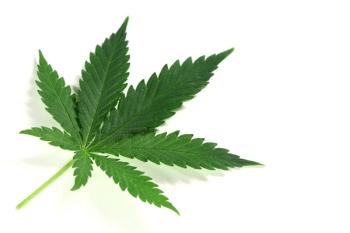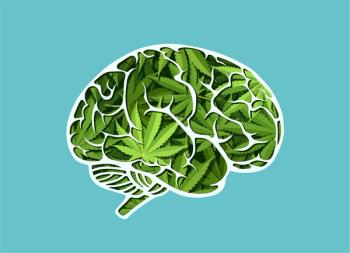
- July/August 2022
- Volume 3
- Issue 2
- Pages: 26-28
More than Skin Deep: How the Subconscious and Cannabis Help Go Beyond Traditional Understandings of Health and Healing
Dr. Elizabeth Hughes explains her unique perspectives on health, the influence of the subconscious, and incorporating CBD oil as part of treatments.
Dr. Elizabeth Hughes, a dermatologist by training, had started a career in medicine after completing her education at the University of Virginia School of Medicine and her dermatology residency at Stanford School of Medicine, when she began combatting the challenges of traditional medicine and treatment. She started to look beyond what traditional medicine had to offer, later also becoming a certified yoga instructor, and completing coaching courses. For chronic illnesses and autoimmune diseases, she now coaches her clients in ways to activate the body’s natural ability to heal by exploring the subconscious mental and emotional effects on a person’s health. She also recently created a cannabidiol (CBD) oil skin treatment, despite facing challenges and resistance to the use of cannabis and CBD as a part of medicine. Both cannabis and Dr. Hughes’s approach to health are part of a larger exploration of what health truly means to a person, an exploration stemming from the idea that overall wellness and lasting health are cultivated from areas beyond conventional confines.
A New Approach to Health and Wellness
In Washington State, Dr. Elizabeth Hughes helps to change the way her clients view their health and wellness. As she puts it, she has “graduated and moved on from dermatology,” and though she no longer provides direct, traditional patient care, she “coaches patients with chronic, unsolvable medical conditions on how to activate their body's natural healing ability.” The tagline for her current practice is “Healing Beyond Medicine.” For Dr. Hughes, looking beyond traditional medicine is twofold. First, she asks why? “While I love medical science, you can't get answers to questions you don't ask. There are a lot of questions in medicine that people don't ask,” she explained. “For example, why do some people, if they take a medication, get better and some people don’t? Why do some people have a certain side effect and some don't? For a science, there's a whole lot of inaccuracy, in comparison with chemistry and physics, where there are clear effects and phenomenon.”
The second part of looking beyond is to push the boundaries on what’s considered “off limits” in medicine. “We don't know what's good for us unless we study it. There are a lot of medications or beneficial substances that are off limits in medicine,” she said. “You can't talk about cannabis or CBD because they’ve been put into the ‘bad’ category.” Conversely, even some medicine and practices placed in the “good” category have turned out to be harmful. For example, Dr. Hughes points out that at one point, hormone replacement therapy was considered crucial for postmenopausal women, until it was discovered that this caused an increase in heart disease. How does this way of questioning and categorizing treatment have an effect on overall health? What other treatments and alternatives could patients be missing, particularly in terms of the therapeutic benefits of cannabis and its derivatives?
Dr. Hughes’ method of working with patients is similar to the idea of personalized medicine–the practice of looking at a person’s biological makeup and adjusting their treatment–but her method is more nuanced. “I'm a little closer to what a psychiatrist or a therapist would do. I look very personally at the beliefs that a person has picked up about health through their lives,” said Dr. Hughes. “I have some specific protocols and several different coaching certifications to help people to reset. First off, there is the investigation. What is it that you actually do believe? Then we work on resetting all of those beliefs.”
Dr. Hughes believes that the emotional and subconscious state of a patient as a person in general helps determine their health and recovery. The subconscious can drive how people use medications, respond to illness, and how the body heals and recognizes itself. She works to find the deep-seated and underlying beliefs a person could be carrying all their lives, even without being aware of it, and how it could be directing their attitudes towards their own health and healing. She explores the links people have formed about health conditions, even if they are not entirely valid. “What happens if a child at a very young age is told ‘your grandmother has cancer and she's going to die’? Well, believe it or not, for the rest of life that two-year-old mind or three-year-old mind of the child says ‘cancer equals death,’” she explained. Dr Hughes added that even if this same person later in their life understands that there are treatments and that most people survive cancer, that subconscious link can still linger and hinder.
With autoimmune diseases in particular, subconscious beliefs play a role in the body’s ability to heal and deal. An autoimmune disease is the body attacking itself, perceiving its own cells as an invader. It can involve several parts of the body, such as with lupus, or be contained to one part of the body. “Every person that I've ever treated with an autoimmune disease of some sort has had a quite a bit of this negative self-talk toward themselves,” said Dr. Hughes. “There's this feeling of ‘there's something of me defective.’ And what does the body do if there's something defective? It tries to eliminate it.” The negative self-talk parallels the self-destruction of the disease, both potentially influencing each other. Part of the solution then becomes overcoming this type of negative internal dialogue and beginning a “radical reform.” Dr. Hughes said that her patients are sometimes hesitant to share their method of healing with their friends and family due to its unconventional nature, but accepting help and coaching with an open mind is key to starting on the path to better health.
How CBD Fits In
While part of her practice involves exploring and resetting subconscious beliefs and their impact on health, another important part of her practice involves treatment with CBD oil. Dr. Hughes first learned about the cannabinoid years ago and it gave her a new option for promoting health. “I came across a medical article on CBD in a journal, a review article on the use of CBD in skin, and I thought, this is powerful stuff that has multiple beneficial effects. Something that regulates the production and the growth of the skin. It has a broad window of safe usage amounts, it's hard to overdose on it, and doesn't cause sensitivity if it's used on the skin,” she said.
The unique properties of CBD oil paired well, she noted, with what skin needs to function well. As Dr. Hughes explained, the top layer of the epidermis keeps the human body waterproof, allergen proof, and irritant proof. With inflammation, though, that protective barrier is disrupted and in need of repair, especially if conditions such as psoriasis, eczema, dermatitis, and dandruff are already present. “CBD actually interacts with the inflammatory cascade, as it's called in physiology, at multiple points to decrease inflammation. It doesn't have to go deep into the body to have an effect because it's literally skin deep. That's one really exciting part of CBD,” said Dr. Hughes. Additionally, it also regulates the cell maturation and helps reform the skin barrier. “In the world of skincare, there are no products other than prescription medications that do that. There are none.”
Thinking that the anti-inflammatory and anti-itch properties of CBD should be explored more, Dr. Hughes began to “tinker in her kitchen,” testing quantity amounts and percentages to create skin care products containing CBD oil that would help people with common inflammatory skin conditions. From the initial tests to the creation of the final product to then perfecting the product, the whole process took several years, but eventually she produced a scalp oil to treat dandruff. Different than a traditional dandruff shampoo, it delivers oil directly to the scalp to help repair the natural skin barrier. “The skin barrier repair function is a game changer, even for conditions such as chapped lips or dishpan hands–that's a skin barrier repair problem,” Dr. Hughes explained. “This is dermatologic magic. So, why aren't we using it more?”
Challenges, Obstacles, and Overcoming
With the success of her new discoveries came challenges and obstacles within the medical community around the acceptance of using or studying the effects of cannabis or CBD as treatment. For starters, once Dr. Hughes finalized her CBD scalp oil product, she encountered the challenge of finding a licensed facility willing to produce it. After a couple of years, she found a physician through a networking event who was interested in CBD products for her patients and who had started her own facility. Dr. Hughes’ product is now manufactured in a Food and Drug Administration (FDA)-approved facility.
In addition to physical barriers, Dr. Hughes has seen social barriers such as bias and misconceptions, obstacles to patients accessing research, and a lack of a push from pharmaceutical companies to promote cannabis as they would other medicine. “I think the most common misconception would be that CBD oil just doesn't work. It's sort of a degree of ignorance, a misconception that it’s all hearsay and old wives’ tales and there's no data,” she said. “In reality, really good, high-quality scientific research has been done to show benefits for this.” Furthermore, Dr. Hughes added that even though the research and data has been done and published, it has not been made easily accessible to patients, caregivers, and the general non-medical community–it has not been translated into language that’s readable without a medical background.
Even the medical community itself has displayed bias when encountering or presenting information on cannabis. Dr. Hughes stays up to date not only on medical literature, but also opinion pieces. “There are lots of physician-only information services that will offer position pieces and commentary, but there is so much there about the potential side effects of cannabis,” she said. “Yes, it can cause hyperemesis in a few people, for example, but it’s like anything else. You can overdose on Tylenol, for example, incredibly easily, but we don't stop it–we tell people to not exceed the dose.”
One example of the consequences of bias Dr. Hughes knows firsthand involved a close friend and emergency medicine doctor in Washington State who was suddenly terminated allegedly due to being overheard discussing cannabis with a chronic pain patient. At the time, cannabis was legal in Washington.
Another potential factor contributing to the challenges surrounding cannabis is the lack of a push to promote it in the general public. One possible reason behind this, Dr. Hughes suggested, is that “in cannabis and in CBD is there isn't one big drug manufacturer that has a self-interest in trying to convert this information into something that is easily palatable and has flashy graphics behind it. In contrast, I'm a mom-and-pop shop, a solo person.” Without the expensive advertising and promotion, cannabis remains behind the scenes, relegated to the back pages of search results pages, essentially hidden from anyone looking for alternative treatment options.
Looking Toward the Future and Beyond
Dr. Hughes wanted to start with the production of a dandruff treatment knowing that no new products have been created for it since the 1990s. Now, when looking toward what’s next, she has started to expand her skin care products, looking at whole body treatments as well as spot treatment, especially considering the damage hand sanitizer has wrought during COVID. In terms of cannabis derivatives for her patients and for anyone interested in finding more information on exploring CBD as a treatment option, Dr. Hughes recommends seeking out the advice of a physician who has knowledge around cannabis and CBD medicine, specifically. Patient advocacy groups and publications can give good advice as well. Overall, Dr. Hughes suggests approaching chronic illness and health with an open mind because there is more than one pillar of health. She hopes people will look at physical substances such as CBD and medication, plus the basics such as healthy sleeping habits and nutrition, but also at the mental and emotional factors of a healthy life such as creative outlets, meaningful relationships, and finding a purpose. Treatment can sometimes be skin deep, but reclaiming a life of lasting wellness involves looking beyond the basics.
“I'm for what works,” Dr. Hughes said. “If it's not harming you and you're better, I am for what works. I'm never going to tell a person to stop doing something that is clearly improving their lives.”
For more information on Dr. Elizabeth Hughes’ practice, please visit
Articles in this issue
over 3 years ago
Cannabis Patient Care July/August 2022 Digital Editionover 3 years ago
Research Overview: Cannabis and Autoimmune Disordersover 3 years ago
Cannabis for Autoimmune Disease: Benefits Beyond Symptom Relief?over 3 years ago
Patient and Activist Profile: Carla Basanteover 3 years ago
The Knox Docs Story: A Family of Endocannabinologistsover 3 years ago
The Latest News on Cannabis and Autoimmune DiseaseNewsletter
Unlock the latest breakthroughs in cannabis science—subscribe now to get expert insights, research, and industry updates delivered to your inbox.




